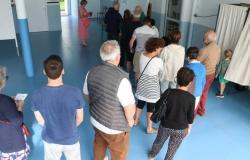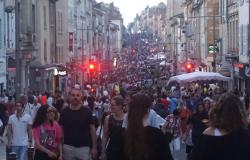Some 61 million Iranians are called to the polls on Friday for a presidential election whose outcome promises to be uncertain due to the breakthrough of a reformer against divided conservative candidates.
Voting begins at 8:00 a.m. (04:30 GMT) in the 58,640 polling stations spread across the vast country, from the Caspian Sea in the north to the Gulf in the south.
The election had to be hastily organized after the death of President Ebrahim Raisi in a helicopter crash on May 19.
It is being closely followed abroad as Iran, a Middle Eastern heavyweight, is at the heart of several geopolitical crises, from the war in Gaza to the nuclear issue, in which it opposes Western countries.
Four candidates, men in their fifties and sixties, are in the running.
If none of them wins more than half the votes, a second round will be held on July 5, which has only been the case in one presidential election, in 2005, since the advent of the Islamic Republic 45 years ago.
Official results are expected no later than Sunday, but estimates are expected to be released on Saturday.
– “Honest and caring” –
The surprise may come from the lone reformist candidate, Massoud Pezeshkian, a 69-year-old lawmaker who was virtually unknown when he was allowed to run by the Guardian Council, the authority responsible for overseeing elections.
Discreet in appearance but speaking frankly, this doctor of Azeri origin, a minority in northwestern Iran, has given new hope to the reformist and moderate camps, totally marginalized in recent years by the conservatives and ultraconservatives.
He is “honest, fair and caring,” said former reformist president Mohammad Khatami (1997-2005), who called for a vote for him, like former moderate president Hassan Rohani (2013-2021).
Facing him, the supporters of the current government are divided between the candidates Mohammad-Bagher Ghalibaf, conservative president of Parliament, and Saïd Jalili, former ultraconservative negotiator of the nuclear issue and hostile to a rapprochement with the West.
To hope to win, Massoud Pezeshkian must count on a sharp increase in turnout compared to the last elections, which were shunned by around half of the voters.
Only 49% of them voted in the 2021 presidential election, for which no major reform or moderate candidate was allowed to compete.
Opponents, particularly those from the diaspora, called for a boycott of the vote.
Whatever the result, the election should have limited repercussions because the president has restricted powers: he is responsible for applying, at the head of the government, the broad political lines set by the supreme guide, who is the head of the state.
– Question of the veil –
For the latter, Ayatollah Ali Khamenei, “the most qualified candidate” to be president should be “the one who truly believes in the principles of the Islamic Revolution” and allows Iran “to advance without being dependent” on foreign countries.
He said, however, that the country should not “cut off its relations with the world.”
During the debates, ultraconservative Saïd Jalili criticized the moderates for having signed the Iranian nuclear agreement with the great powers in 2015, which “did not benefit Iran at all”.
“Are we supposed to be eternally hostile to America or do we aspire to resolve our problems with this country?” asked Mr. Pezeshkian, calling for a revival of the nuclear agreement in order to lead to the lifting of the severe sanctions that are affecting the Iranian economy.
Furthermore, the very sensitive issue of the compulsory wearing of the veil for women has emerged in the campaign, almost two years after the vast protest movement that shook the country at the end of 2022 following the death of Mahsa Amini, arrested for non-compliance with the dress code.
In the televised debates, the candidates distanced themselves from the sometimes violent police arrests of women refusing to wear the hijab in public places.
“We should not treat Iranian women with such cruelty under any circumstances,” said Mustafa Pourmohammadi, the only religious candidate.





